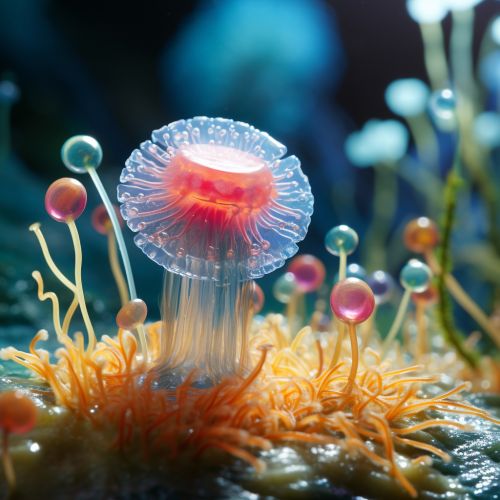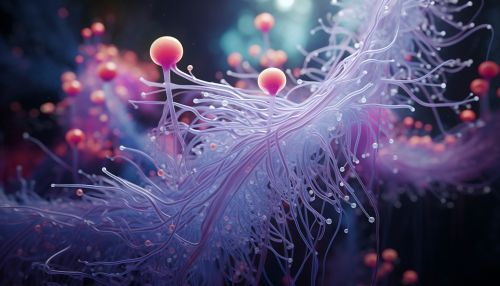Flagellar evolution
Introduction
Flagellar evolution refers to the evolutionary process that has led to the development of a complex cellular structure known as the flagellum. The flagellum, a whip-like appendage, is used by cells for locomotion and sensory purposes. This article delves into the intricate details of flagellar evolution, exploring the origins, mechanisms, and implications of this fascinating biological phenomenon.


Origins of Flagella
The origins of flagella are a topic of ongoing scientific debate. Some theories propose that flagella evolved from a secretory system, while others suggest that they originated from a spirochete ancestor. The endosymbiotic theory is one of the most widely accepted theories, suggesting that flagella evolved from a symbiotic relationship between primitive eukaryotic cells and bacteria.
Structure and Function
Flagella are composed of several protein components, each with a specific function. The flagellin protein forms the filament, the long, whip-like structure that propels the cell. The basal body, composed of several ring structures, anchors the flagellum to the cell membrane. The hook connects the filament to the basal body and acts as a universal joint.
Evolutionary Mechanisms
The evolution of flagella is thought to have occurred through a process known as molecular evolution. This involves the gradual accumulation of mutations in the genetic material of an organism, leading to changes in the structure and function of its proteins. Over time, these changes can result in the development of new structures, such as flagella.
Evolutionary Implications
The evolution of flagella has had significant implications for the survival and diversification of life on Earth. Flagella have enabled organisms to move towards or away from stimuli, a behavior known as taxis. This has allowed organisms to explore new environments, find food, and avoid predators, thereby increasing their chances of survival and reproduction.
Controversies and Debates
The evolution of flagella has been a subject of controversy, particularly in relation to the concept of irreducible complexity. Proponents of intelligent design argue that flagella are too complex to have evolved through natural processes. However, this view is not widely accepted within the scientific community, which generally supports the idea that flagella evolved through gradual, step-by-step processes.
Future Directions
Future research in flagellar evolution will likely focus on uncovering the precise genetic changes that have led to the development of flagella. This could provide valuable insights into the mechanisms of evolution and the origins of complex cellular structures.
